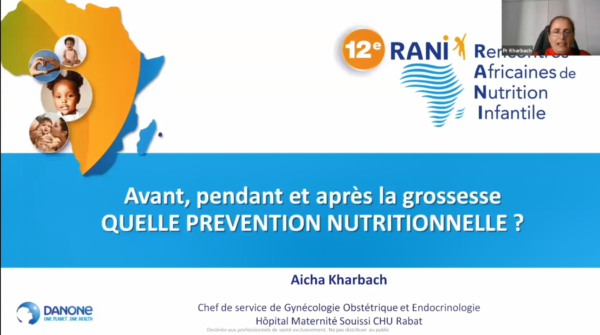According to Barker’s hypothesis, perinatal nutrition has clear consequences on the onset of non-communicable diseases during adulthood1. This hypothesis has led to our current understanding that optimal nutrition during the first 1000 days reduces the risk of chronic diseases in adulthood and in later stages of life.
However, in most African countries, pregnancies are most commonly unplanned. Moreover, in current practice, there is very little medical attention paid to perinatal maternal nutrition. This phenomenon highlights the need to also prioritise the importance of maternal perinatal health considering that conditions concerning in-utero development have long term consequences on infant health.2
On a global scale, 16 million adolescents give birth to a child per year3. These pregnancies are often unplanned and undesired. Adolescent mothers have 50% greater risk of death due to pregnancy related complications and often give birth to low-birth-weight infants in comparison to mothers aged 20 to 29 years old3.
Given this context, preconceptual health and consultation play a beneficial role in the preservation of period of organogenesis and the prevention of infantile obesity.
Additionally, specific dietary advice should be provided to breastfeeding mothers to achieve nutritional requirements mainly on energy (500-600 kcal/day)4, proteins (13-19 g/day)4, and essential fatty acids, which play a role in infant neurodevelopment, should be supplemented through the diet.
Listen to the conference « before conception and pregnancy: what are the challenges of maternal nutrition? » hosted during the 12th edition of RANI (African meeting of Infant Nutrition) the 11th of November 2021.
Speaker :Dr. Aicha Kharbach, Chef de service de Gynécologie Obstétrique et Endocrinologie Hôpital Maternité Souissi CHU Rabat, Maroc.
Click here to watch this video

References
- Eriksson JG. The fetal origins hypothesis–10 years on. 2005;330(7500):1096-1097.
- Stothard, K. J., Tennant, P. W. G., Bell, R., & Rankin, J. (2009). Maternal Overweight and Obesity and the Risk of Congenital Anomalies: A Systematic Review and Meta-analysis. JAMA, 301(6), 636–650.
- OMS 2012 (Organisation mondiale de la Santé), « Prévenir les grossesses précoces et leurs conséquences en matière de santé reproductive chez les adolescentes dans les pays en développement : les faits »
- EFSA 2017 (European Food Safety Agency), Dietary Reference Values for nutrients Summary report
BA22-086
